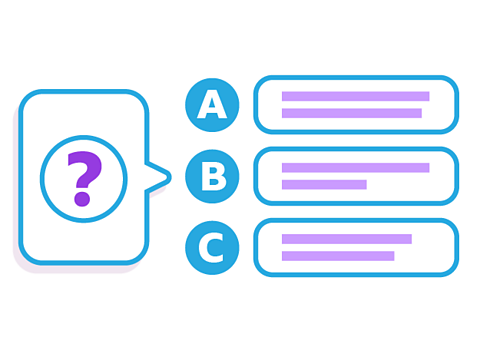Key points about irregular verbs in the present tense in Spanish

Irregular verbs donāt follow the usual pattern in the present tense.
Some irregular present tense verbs only change in the āIā form.
Radical-changing verbs take the same endings as regular verbs but the stemThe part of the verb that is left once the infinitive ending (ar/er/ir) has been taken off. It can also be called a radical. also changes.
modal verbShows possibility, intent, ability, or necessity. Used alongside the infinitive form of the main verb of a sentence. Common examples of modal verbs include can, should, and must. include to be able to/can, have to/must. They can be used by themselves or with an infinitiveForm of the verb that has not been conjugated. Usually translated with 'to' in English, eg to play..
Common irregular verbs in the present tense
Some of the most common verbs in Spanish are irregular verbs. This means that they donāt follow the usual pattern in the present tense. You have to learn each one separately.
The four most common irregular verbs are:
| Sorry, something went wrongCheck your connection, refresh the page and try again. - to be | Sorry, something went wrongCheck your connection, refresh the page and try again. - to be | Sorry, something went wrongCheck your connection, refresh the page and try again. - to have | Sorry, something went wrongCheck your connection, refresh the page and try again. - to go |
|---|---|---|---|
| soy - I am | estoy - I am | tengo - I have | voy - I go |
| eres - you are | ±š²õ³ŁĆ”²õ - you are | tienes - you have | vas - you go |
| es - he/she is | ±š²õ³ŁĆ” - he/she is | tiene - he/she has | va - he/she goes |
| somos - we are | estamos - we are | tenemos - we have | vamos - we go |
| sois - you (plural) are | ±š²õ³ŁĆ”is - you (plural) are | ³Ł±š²ŌĆ©¾±²õ - you (plural) have | vais - you (plural) go |
| son - they are | ±š²õ³ŁĆ”n - they are | tienen - they have | van - they go |
For example:
Soy de Inglaterra. - Iām from England.
La casa ±š²õ³ŁĆ” enfrente del cine. - The house is opposite the cinema.
Temenos un buen profesor de espaƱol. - We have a good Spanish teacher.
Mis padres van a un hotel este fin de semana. - My parents are going to a hotel this weekend.
For more information on how to use the two verbs for 'to be' in Spanish, have a look at this guide on ser and estar.
To find out how to use the verb 'to have' in Spanish, have a look at this guide on tener.
'Decir' (to say) and 'venir' (to come)
These irregular verbs are also useful:
| Sorry, something went wrongCheck your connection, refresh the page and try again. - to say | Sorry, something went wrongCheck your connection, refresh the page and try again. - to come |
|---|---|
| Sorry, something went wrongCheck your connection, refresh the page and try again. - I say | Sorry, something went wrongCheck your connection, refresh the page and try again. - I come |
| Sorry, something went wrongCheck your connection, refresh the page and try again. - you say | Sorry, something went wrongCheck your connection, refresh the page and try again. - you come |
| Sorry, something went wrongCheck your connection, refresh the page and try again. - he/she says | Sorry, something went wrongCheck your connection, refresh the page and try again. - he/she comes |
| Sorry, something went wrongCheck your connection, refresh the page and try again. - we say | Sorry, something went wrongCheck your connection, refresh the page and try again. - we come |
| Sorry, something went wrongCheck your connection, refresh the page and try again. - you (plural) say | Sorry, something went wrongCheck your connection, refresh the page and try again. - you (plural) come |
| Sorry, something went wrongCheck your connection, refresh the page and try again. - they say | Sorry, something went wrongCheck your connection, refresh the page and try again. - they come |
For example:
Mi hermano dice que quiere ir al cine. - My brother says he wants to go to the cinema.
ĀæVienes conmigo? - Are you coming with me?
Verbs which are irregular in the āIā form only
Some verbs are only irregular in the first person (āIā form) of the verb. These include:
| infinitive | 'I' form |
|---|---|
| conocer - to know | conozco - I know |
| dar - to give | doy - I give |
| hacer - to do/make | hago - I do/make |
| poner - to put/set | pongo - I put/set |
| saber - to know | ²õĆ© - I know |
| salir - to go out/leave | salgo - I go out/leave |
| ver - to see/watch | veo - I see/watch |
For example:
Conozco a Andrea. - I know Andrea.
Hago mis deberes hoy. - Iām doing my homework today.
No ²õĆ©. - I donāt know.
Salgo con mi novio maƱana. - Iām going out with my boyfriend tomorrow.
No veo mucho la televisiĆ³n. - I donāt watch much TV.
Irregular verbs in the present tense in Spanish - Mini quiz

Fill in the gap with the correct verb:
____ muchos deberes.
I have a lot of homework.
Tengo muchos deberes.
Tengo means I have.
Fill in the gap with the correct verb:
____ que es difĆcil.
They say itās difficult.
Dicen que es difĆcil.
Dicen means they say.
Radical-changing verbs
Radical-changing verbs usually take the same endings as regular verbs but the stem also changes. The vowel in the stem changes for the following parts of the verb:
- I
- you (singular)
- he/she/you (polite)
- they/you (polite plural)
Some people call these ā1, 2, 3, 6 verbsā to help them remember that the stem only changes in the 1st, 2nd, 3rd and 6th forms of the verb.
There are four groups of stem-changing verbs:
| e ā ie | e ā i | o ā ue | u ā ue |
|---|---|---|---|
| Sorry, something went wrongCheck your connection, refresh the page and try again. - to want | Sorry, something went wrongCheck your connection, refresh the page and try again. - to ask for | Sorry, something went wrongCheck your connection, refresh the page and try again. - to be able/can | Sorry, something went wrongCheck your connection, refresh the page and try again. - to play |
| Sorry, something went wrongCheck your connection, refresh the page and try again. - I want | Sorry, something went wrongCheck your connection, refresh the page and try again. - I ask for | Sorry, something went wrongCheck your connection, refresh the page and try again. - I can | Sorry, something went wrongCheck your connection, refresh the page and try again. - I play |
| Sorry, something went wrongCheck your connection, refresh the page and try again. - you want | Sorry, something went wrongCheck your connection, refresh the page and try again. - you ask for | Sorry, something went wrongCheck your connection, refresh the page and try again. - you can | Sorry, something went wrongCheck your connection, refresh the page and try again. - you play |
| Sorry, something went wrongCheck your connection, refresh the page and try again. - he/she wants | Sorry, something went wrongCheck your connection, refresh the page and try again. - he/she asks for | Sorry, something went wrongCheck your connection, refresh the page and try again. - he/she can | Sorry, something went wrongCheck your connection, refresh the page and try again. - he/she plays |
| Sorry, something went wrongCheck your connection, refresh the page and try again. - we want | Sorry, something went wrongCheck your connection, refresh the page and try again. - we ask for | Sorry, something went wrongCheck your connection, refresh the page and try again. - we can | Sorry, something went wrongCheck your connection, refresh the page and try again. - we play |
| Sorry, something went wrongCheck your connection, refresh the page and try again. - you (plural) want | Sorry, something went wrongCheck your connection, refresh the page and try again. - you (plural) ask for | Sorry, something went wrongCheck your connection, refresh the page and try again. - you (plural) can | Sorry, something went wrongCheck your connection, refresh the page and try again. - you (plural) play |
| Sorry, something went wrongCheck your connection, refresh the page and try again. - they want | Sorry, something went wrongCheck your connection, refresh the page and try again. - they ask for | Sorry, something went wrongCheck your connection, refresh the page and try again. - they can | Sorry, something went wrongCheck your connection, refresh the page and try again. - they play |
For example:
Quieren una pizza. - They want a pizza.
Pide un cafƩ con leche. - He asks for a white coffee.
Podemos ir a la playa. - We can go to the beach.
Juego al tenis con mis amigas. - I play tennis with my friends.
Other e ā ie stem-changing verbs include:
| infinitive | 'I' form |
|---|---|
| Sorry, something went wrongCheck your connection, refresh the page and try again. - to wake up | Sorry, something went wrongCheck your connection, refresh the page and try again. - I wake up |
| Sorry, something went wrongCheck your connection, refresh the page and try again. - to enjoy yourself | Sorry, something went wrongCheck your connection, refresh the page and try again. - I enjoy myself |
| Sorry, something went wrongCheck your connection, refresh the page and try again. - to start | Sorry, something went wrongCheck your connection, refresh the page and try again. - I start |
| Sorry, something went wrongCheck your connection, refresh the page and try again. - to prefer | Sorry, something went wrongCheck your connection, refresh the page and try again. - I prefer |
| Sorry, something went wrongCheck your connection, refresh the page and try again. - to snow | Sorry, something went wrongCheck your connection, refresh the page and try again. - it snows |
Other e ā i stem-changing verbs include:
| infinitive | 'I' form |
|---|---|
| Sorry, something went wrongCheck your connection, refresh the page and try again. - to repeat | Sorry, something went wrongCheck your connection, refresh the page and try again. - I repeat |
| Sorry, something went wrongCheck your connection, refresh the page and try again. - to serve | Sorry, something went wrongCheck your connection, refresh the page and try again. - I serve |
| Sorry, something went wrongCheck your connection, refresh the page and try again. - to get dressed | Sorry, something went wrongCheck your connection, refresh the page and try again. - I get dressed |
Other o ā ue stem-changing verbs include:
| infinitive | 'I' form |
|---|---|
| Sorry, something went wrongCheck your connection, refresh the page and try again. - to go to bed | Sorry, something went wrongCheck your connection, refresh the page and try again. - I go to bed |
| Sorry, something went wrongCheck your connection, refresh the page and try again. - to sleep | Sorry, something went wrongCheck your connection, refresh the page and try again. - I sleep |
| Sorry, something went wrongCheck your connection, refresh the page and try again. - to find | Sorry, something went wrongCheck your connection, refresh the page and try again. - I find |
| Sorry, something went wrongCheck your connection, refresh the page and try again. - to return | Sorry, something went wrongCheck your connection, refresh the page and try again. - I return |
| Sorry, something went wrongCheck your connection, refresh the page and try again. - to cost | Sorry, something went wrongCheck your connection, refresh the page and try again. - it costs |
| Sorry, something went wrongCheck your connection, refresh the page and try again. - to rain | Sorry, something went wrongCheck your connection, refresh the page and try again. - it rains |
Modal verbs
Modal verbs express the speakerās feeling towards an action, such as to be able to/can or to have to/must. These verbs indicate modality, ability, necessity, possibility, obligation or permission. They can work on their own, or with another verb that is always in the infinitive.
For example:
Sorry, something went wrongCheck your connection, refresh the page and try again. - to want
Quiero ese vestido. - I want that dress.
Quiero comprar ese vestido. - I want to buy that dress.
| Sorry, something went wrongCheck your connection, refresh the page and try again. - to want | Sorry, something went wrongCheck your connection, refresh the page and try again. - to have to/must | Sorry, something went wrongCheck your connection, refresh the page and try again. - to be able/can | Sorry, something went wrongCheck your connection, refresh the page and try again. - to know |
|---|---|---|---|
| Sorry, something went wrongCheck your connection, refresh the page and try again. - I want | Sorry, something went wrongCheck your connection, refresh the page and try again. - I must | Sorry, something went wrongCheck your connection, refresh the page and try again. - I can | Sorry, something went wrongCheck your connection, refresh the page and try again. - I know |
| Sorry, something went wrongCheck your connection, refresh the page and try again. - you want | Sorry, something went wrongCheck your connection, refresh the page and try again. - you must | Sorry, something went wrongCheck your connection, refresh the page and try again. - you can | Sorry, something went wrongCheck your connection, refresh the page and try again. - you know |
| Sorry, something went wrongCheck your connection, refresh the page and try again. - he/she wants | Sorry, something went wrongCheck your connection, refresh the page and try again. - he/she must | Sorry, something went wrongCheck your connection, refresh the page and try again. - he/she can | Sorry, something went wrongCheck your connection, refresh the page and try again. - he/she knows |
| Sorry, something went wrongCheck your connection, refresh the page and try again. - we want | Sorry, something went wrongCheck your connection, refresh the page and try again. - we must | Sorry, something went wrongCheck your connection, refresh the page and try again. - we can | Sorry, something went wrongCheck your connection, refresh the page and try again. - we know |
| Sorry, something went wrongCheck your connection, refresh the page and try again. - you (plural) want | Sorry, something went wrongCheck your connection, refresh the page and try again. - you (plural) must | Sorry, something went wrongCheck your connection, refresh the page and try again. - you (plural) can | Sorry, something went wrongCheck your connection, refresh the page and try again. - you (plural) know |
| Sorry, something went wrongCheck your connection, refresh the page and try again. - they want | Sorry, something went wrongCheck your connection, refresh the page and try again. - they must | Sorry, something went wrongCheck your connection, refresh the page and try again. - they can | Sorry, something went wrongCheck your connection, refresh the page and try again. - they know |
For example:
Deben hacer los deberes. - They must do the homework.
ĀæPuedes hacer los deberes? - Can you do the homework?
Sabemos como hacer los deberes. - We know how to do the homework.
Quiz - Irregular verbs in the present tense in Spanish
Practise what you've learned about irregular verbs in the present tense in Spanish with this quiz.
Higher Tier - The verb āsolerā
Another important modal verb is soler (to normally, tend to, usually) which is always followed by an infinitive verb.
| Sorry, something went wrongCheck your connection, refresh the page and try again. | to normally, tend to, usually |
|---|---|
| Sorry, something went wrongCheck your connection, refresh the page and try again. | I normally, tend to, usually |
| Sorry, something went wrongCheck your connection, refresh the page and try again. | you normally, tend to, usually |
| Sorry, something went wrongCheck your connection, refresh the page and try again. | he/she normally, tends to, usually |
| Sorry, something went wrongCheck your connection, refresh the page and try again. | we normally, tend to, usually |
| Sorry, something went wrongCheck your connection, refresh the page and try again. | you (plural) normally, tend to, usually |
| Sorry, something went wrongCheck your connection, refresh the page and try again. | they normally, tend to, usually |
For example:
Suelo ir al colegio a pie. - I normally walk to school.
Solemos jugar al fĆŗtbol en el parque por la tarde. - We usually play football in the park in the afternoon.
Higher Tier - The verb 'soler' - Mini quiz

Fill in the gap with the correct word:
_____ cenar a las siete.
They usually eat dinner at seven.
Suelen cenar a las siete.
Suelen means āthey usuallyā. It must be followed by the infinitive of the verb, cenar (to eat dinner).
Now you have learned about irregular verbs in the present tense why not explore irregular verbs in the preterite tense in Spanish?
More on Present tense verbs
Find out more by working through a topic
- count5 of 10

- count6 of 10

- count7 of 10
